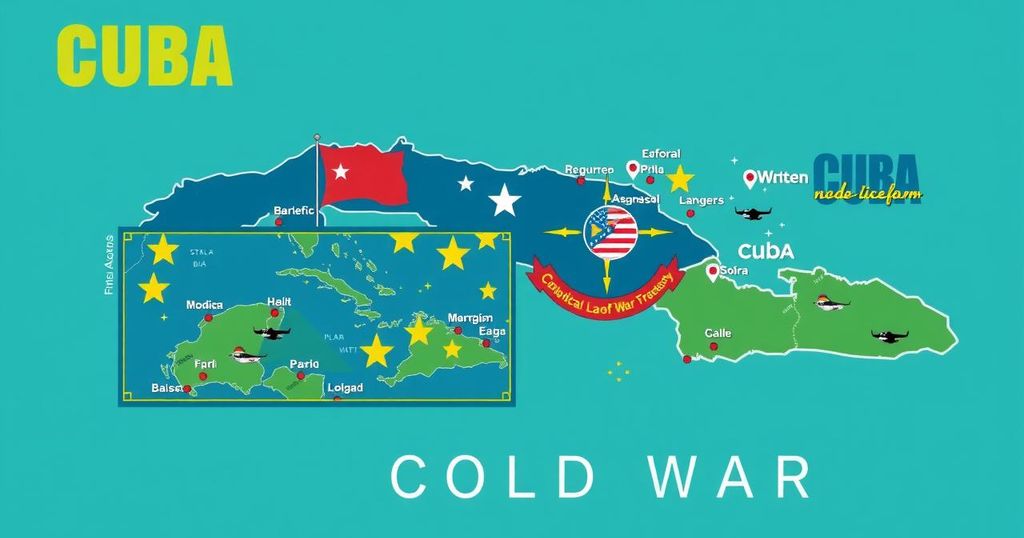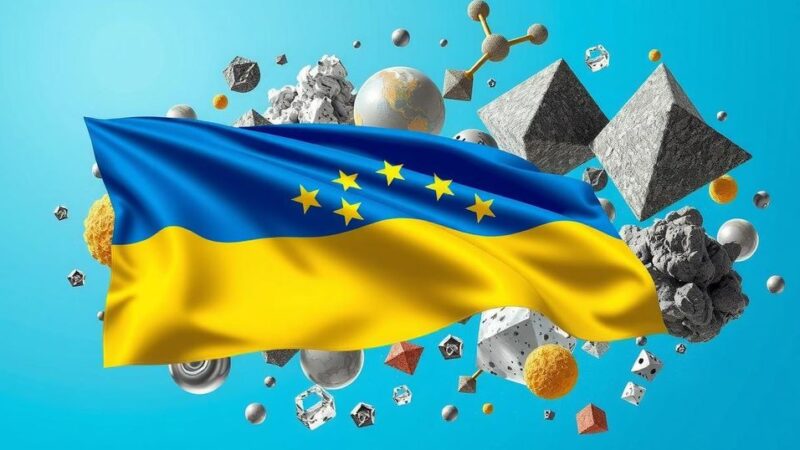This article reviews Cuban geopolitics during the Cold War, focusing on Fidel Castro’s perspectives on security and international relations. Castro addressed the disparities between Cuban and Soviet policies, emphasizing independence and the importance of adhering to a principle of non-interference. It highlights Cuba’s diplomatic activism and global alliances with Third World movements as pivotal to its strategy against U.S. isolation and imperialism. The analysis suggests the relevance of these lessons for today’s geopolitical challenges.
The Cold War significantly shaped Cuban geopolitics, as illustrated by Fidel Castro’s remarks to the Polish Communist Party in June 1972. He stressed the stark contrast between life in Cuba, which lacked military alliances and concepts of security, and the European focus on peace and stability. Castro’s diplomatic journey through Eastern Europe accentuated the U.S. involvement in Vietnam and pointed out that both Cuba and Vietnam were not considered inviolable territories of the socialist camp, highlighting regional differences in interpreting Marxism-Leninism.
Cuba’s growing ties with the socialist camp included membership in the Council for Mutual Economic Assistance (CMEA), yet Castro maintained a principle of diplomacy unbound by common rules that often overlooked fundamental differences. This perspective was evident during the 1968 Soviet intervention in Czechoslovakia, which Castro found ideologically inconsistent with the socialist cause, considering both legal and geopolitical contexts.
Observers often claimed that Cuba succumbed to Moscow’s influence, yet Castro’s speeches during his 1972 tour revealed a more complex narrative. The Cuban foreign policy was driven by diplomatic activism that sought to counteract U.S. isolation; it aimed to construct a consensus space among various political movements worldwide rather than merely export revolutions.
A pivotal challenge for Cuba was the clientelism demonstrated by the USSR and China, fostering division within the socialist alliance. In 1979, Cuba condemned China’s invasions and its affiliations with oppressive regimes, which were contradictory to the Non-Aligned Movement (NAM). This internal discord was further complicated by the USSR’s invasion of Afghanistan, which Castro publicly criticized, creating a diplomatic dilemma for Cuba.
Cuba’s foreign policy adjustments reflected its strategic interests within the NAM, as Castro affirmed support for the USSR while simultaneously critiquing its actions. Disparities between Cuba and the Soviet bloc consistently surfaced across various diplomatic contexts during the Cold War.
Additionally, Cuba’s endeavors in Africa, including military support for Algerian and Congolese independence movements, marked its influence on the continent, necessitating cooperation with the USSR amidst diverging stances with China. These engagements culminated in notable strategic maneuvers that promoted Cuba’s geopolitical significance.
The end of the Cold War and the Soviet Union’s perestroika brought renewed focus to Cuba’s diplomatic relationships. Gorbachev’s visit in 1989 showcased the differences between Soviet and Cuban policies, emphasizing respect for national sovereignty as a central tenet of Marxism-Leninism, underscoring the socialist commitment to non-interference.
In retrospect, understanding the strategic lessons from Cuba’s Cold War policies is crucial in navigating contemporary geopolitical dynamics. The need for broader political perspectives and the imperative to engage thoughtfully with the shifting international landscape remain as pressing as ever amidst rising questions of global influence and power realignments.
In conclusion, the intricacies of Cuban geopolitics throughout the Cold War illustrate a diplomatic landscape defined by independence, strategic alliances, and ideological evaluations. Fidel Castro’s leadership showcased how Cuba navigated its unique position within the socialist camp while maintaining critical distance from superpower dynamics. The lessons drawn from this history are particularly relevant today, as emerging geopolitical trends and influences echo the complexities faced during the Cold War, emphasizing the importance of strategic coherence and respect for sovereignty in international relations.
Original Source: oncubanews.com






